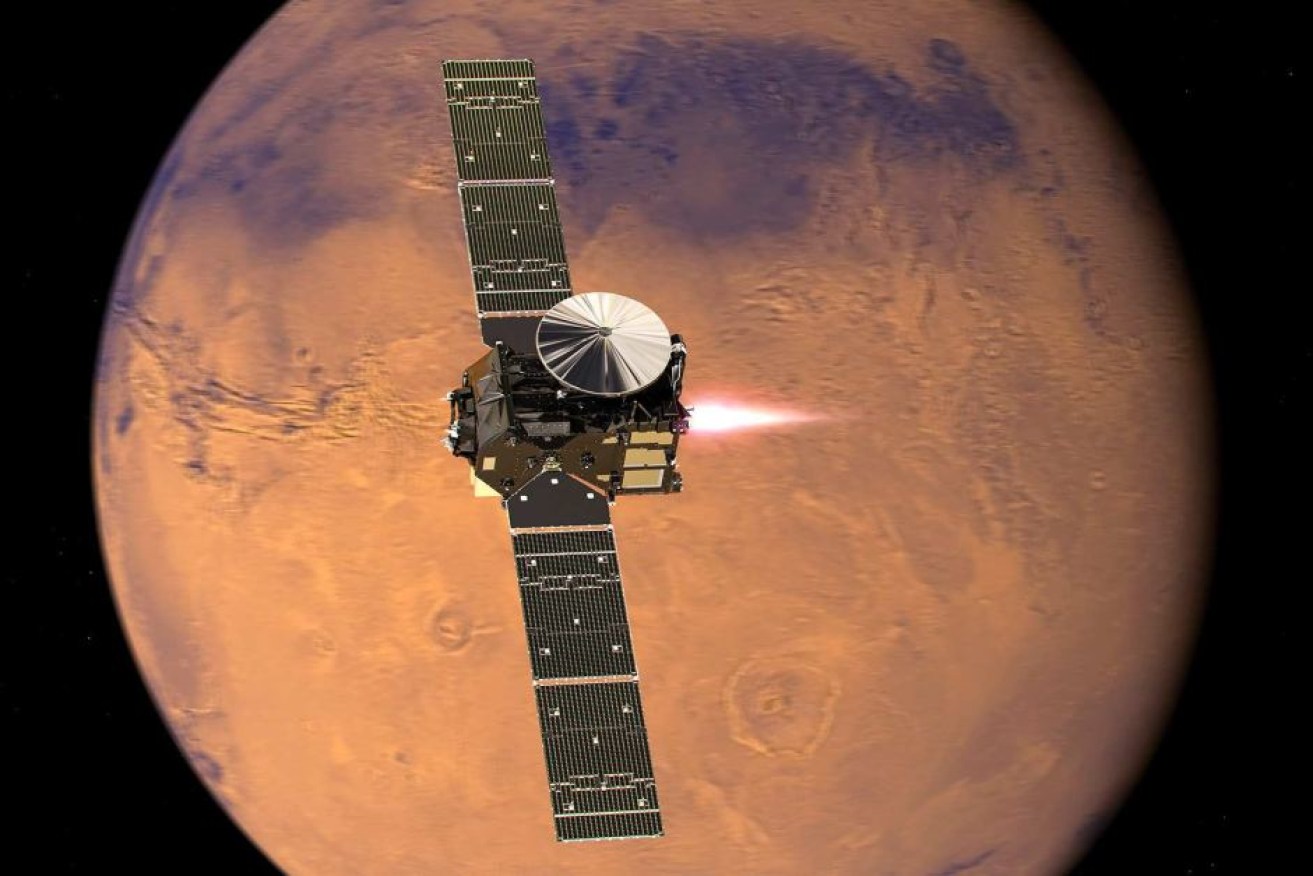Oldest water on Earth could provide clues to hidden life on Mars

Scientists said the water could provide clues as to what could be discovered on other planets. Photo: European Space Agency
Water untouched for two billion years has been found three kilometres underground in Canada, making it the oldest water in the world.
The research community said the discovery may reveal clues about the possibility of extraterrestrial life residing within underground pockets of water on Mars.
Three years ago, scientists discovered liquid which was 1.5 billion years old at the same site in a copper, zinc and silver mine, 2.4 kilometres underground.
But this deeper source of water, at a depth of nearly three kilometres, outdates the first finding by at least 500 million years.
The work was presented at the American Geophysical Union Fall Meeting in San Francisco.
Professor Barbara Sherwood Lollar, from the University of Toronto, led the team that discovered the original underground lake.
She described the smell and taste of the water as not “something to write home about”.
“It’s highly saline – another aspect of it that [which] tells us that this fluid has been in this sub-surface for really long time of period,” she said.
“So sometimes up to 10 times the salinity of sea water, it’s really quite a nasty business really.
“It’s nothing like the sort of fresh water that people think about when they think about groundwater.
“To us it makes it much more interesting, it’s full of chemical energy for life, which is part of the reason why we’re investigating it.”
Professor Sherwood Lollar said it was an exciting find on a number of levels, including helping to understand what life was like in the deep sub-surface.
“For many years we still thought that life was really just a thin veneer on the surface of the planet, that life was largely dependent just on the sun’s energy,” she said.
“What we have learnt since then through work done at the hydro thermal vents, the ocean bottoms and caves and in the sub-surfaces, is in fact there is life on this planet as well in the deep dark places.”
Could provide clues to life hidden beneath Mars’ surface
Professor Simon George, a geochemist with the Department of Earth and Planetary Sciences at Macquarie University and a member of the Australian Centre of Astrobiology, said the water could provide clues as to what might be discoverable elsewhere on other planets.
“[It is] also highly significant when we’re exploring our solar system for other places that there might be life, such as Mars or some of the moons around Saturn or Jupiter,” he said.
“So for example the surface of Mars is extremely inhospitable for life.
“But many scientists speculate that going below the surface might be where we might find life sheltering from the harsh conditions.
“And the work that’s been published recently here has now shown the possibility of this deep biosphere really working quite separately from the atmosphere of a planet.
“It is quite an incredible geological process that’s been explored there.”
-ABC








